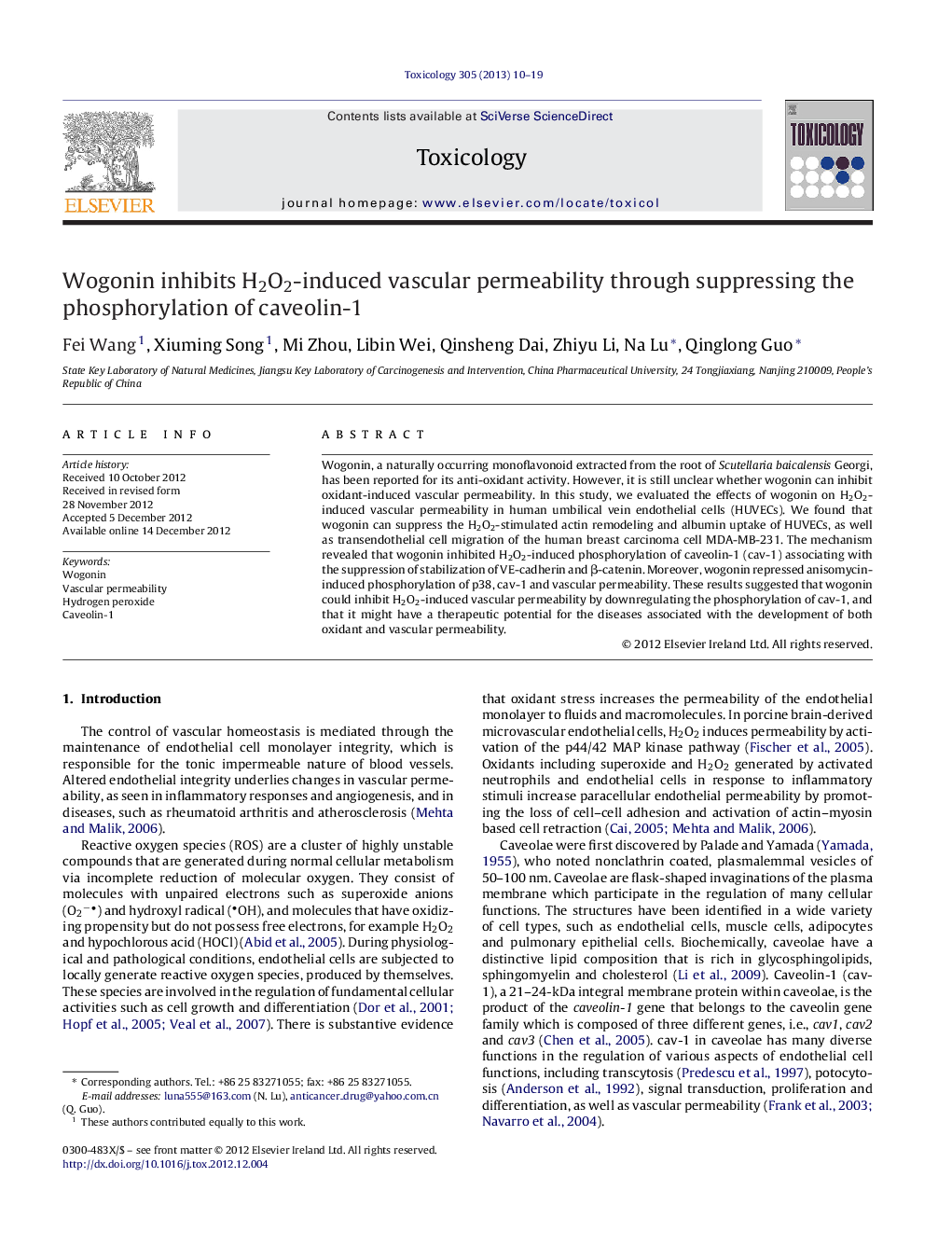| Article ID | Journal | Published Year | Pages | File Type |
|---|---|---|---|---|
| 5859517 | Toxicology | 2013 | 10 Pages |
Abstract
Wogonin, a naturally occurring monoflavonoid extracted from the root of Scutellaria baicalensis Georgi, has been reported for its anti-oxidant activity. However, it is still unclear whether wogonin can inhibit oxidant-induced vascular permeability. In this study, we evaluated the effects of wogonin on H2O2-induced vascular permeability in human umbilical vein endothelial cells (HUVECs). We found that wogonin can suppress the H2O2-stimulated actin remodeling and albumin uptake of HUVECs, as well as transendothelial cell migration of the human breast carcinoma cell MDA-MB-231. The mechanism revealed that wogonin inhibited H2O2-induced phosphorylation of caveolin-1 (cav-1) associating with the suppression of stabilization of VE-cadherin and β-catenin. Moreover, wogonin repressed anisomycin-induced phosphorylation of p38, cav-1 and vascular permeability. These results suggested that wogonin could inhibit H2O2-induced vascular permeability by downregulating the phosphorylation of cav-1, and that it might have a therapeutic potential for the diseases associated with the development of both oxidant and vascular permeability.
Related Topics
Life Sciences
Environmental Science
Health, Toxicology and Mutagenesis
Authors
Fei Wang, Xiuming Song, Mi Zhou, Libin Wei, Qinsheng Dai, Zhiyu Li, Na Lu, Qinglong Guo,
